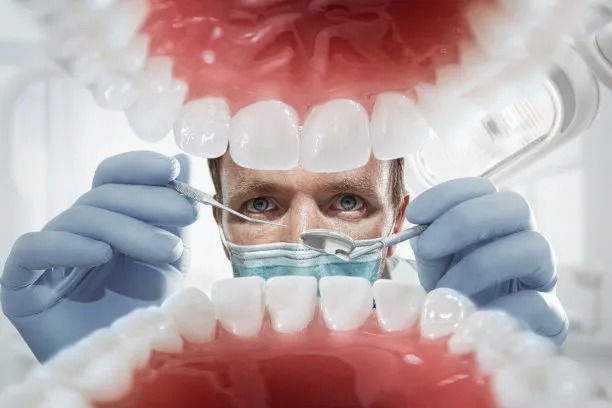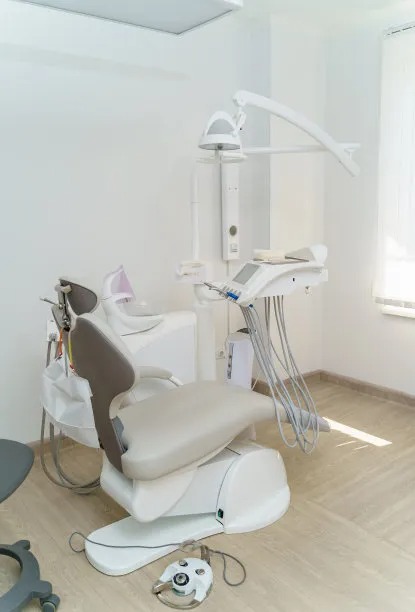Summary: Proper dental care is essential for maintaining optimal oral health and preventing complications that can lead to tooth extraction. This article explores the significance of routine dental hygiene, the role of professional dental visits, the reasons behind tooth extraction, and the importance of post-extraction care. Emphasizing the need for regular brushing, flossing, and professional cleanings, the discussion also highlights the signs indicating the necessity for a tooth extraction and the implications of neglecting oral health. With informed dental practices, individuals can ensure healthier smiles and reduce the risk of severe dental issues.
1. The Role of Routine Dental Hygiene

Routine dental hygiene is crucial for preventing a variety of oral health issues. Brushing teeth at least twice a day and flossing daily can significantly ensure plaque and tartar do not build up on the teeth. By keeping the mouth clean, individuals can minimize the risk of cavities, gingivitis, and more serious conditions like periodontitis.
Moreover, using mouthwash can further enhance oral hygiene. Antimicrobial mouth rinses help reduce oral bacteria and promote fresh breath. Regularly changing toothbrushes and using fluoride toothpaste can also contribute to healthier teeth and gums, preventing decay and the need to consider extractions.
Incorporating healthy dietary choices into daily routines strengthens dental care efforts. Consuming less sugary food and beverages while increasing the intake of fruits and vegetables can support oral health. Effective dental hygiene combined with a balanced diet minimizes the likelihood of tooth extraction due to severe decay or gum disease.
2. Importance of Professional Dental Visits
Beyond home care, professional dental visits play a vital role in maintaining optimal oral health. Dentists provide comprehensive examinations, helping identify problems that consumers might overlook. Early detection of cavities and gum issues can often lead to preventive treatments, thereby reducing the need for tooth extractions.
Professional cleanings performed by dental hygienists complement regular oral hygiene efforts. These cleanings remove tartar that regular brushing cant eliminate, ensuring a thorough clean. After cleanings, dentists can offer personalized advice on improving dental care habits tailored to individual needs.
3. Understanding When to Extract a Tooth
Tooth extraction may become necessary due to various reasons. Severe decay is one of the primary grounds for extraction. When a cavity extends beyond the repairable limits of a tooth, a dentist may need to remove it to prevent the spread of infection to surrounding teeth.
Another reason for extraction is gum disease. Periodontitis can lead to the loosening of teeth as the supporting bone and tissue deteriorate. In such cases, extracting the affected teeth is often required to maintain overall oral health.
Impacted wisdom teeth present another common extraction scenario. As these teeth emerge, they can cause pain, overcrowding, or damage to adjacent teeth. Dentists may recommend extraction to alleviate discomfort and prevent further complications.
4. Importance of Post-Extraction Care
The aftercare following a tooth extraction is just as crucial as the procedure itself. Patients must follow their dentists instructions closely to promote healing and prevent infections. Resting and avoiding strenuous activities for the initial days can aid recovery.
Additionally, maintaining proper oral hygiene post-extraction is vital. Gentle rinsing with salt water can help keep the extraction site clean. However, its essential to follow a dentists guidance on when to start brushing teeth to avoid any disruption in the healing process.
Monitoring for signs of complications, such as prolonged pain or excessive bleeding, is also critical. Recognizing unusual symptoms early can facilitate timely intervention, ensuring optimal recovery and reducing the likelihood of further dental issues down the line.
Summary:
In summary, understanding the importance of dental care and recognizing when to extract a tooth are vital components of maintaining oral health. By emphasizing routine hygiene and regular dental visits, individuals can prevent severe dental issues and minimize the need for extractions. This proactive approach not only ensures healthier teeth but also contributes to overall well-being.
When dental care is prioritized, both immediate and long-term benefits can be achieved. A comprehensive understanding of oral health leads to more informed decisions and better outcomes for dental situations as they arise.
This article is compiled by Vickong Dental and the content is for reference only
Vickong Dental
Vickong Dental is a large medical group established in Hong Kong in 2008 by professors from well-known medical universities in Guangdong and Hong Kong, as well as medical doctors from key national '985' universities (including Master's supervisors and senior professors). The chain of branches brings together expert dentists with PhDs and Master's degrees from Hong Kong and Mainland China, committed to providing high-quality dental treatment.
"Vickong Dental Practices the University Motto of 'Healing and Serving Society,' with a Stable Operation for Sixteen Years. It Has Been honored with Hong Kong Enterprise Leaders's Choice,' and is a Global Trusted Implant Center for the Nobel Implant System. Recommended by Hong Kong Metro Broadcast and Guangdong Television, it Serves Customers from Over Thirty Countries and Regions, Gaining the Trust and Favor of Citizens from the Guangdong-Hong Kong-Macau Greater Bay Area and Surrounding Cities.

Thousands of customers' unanimous praise
The most recognized and highly recommended dental service by customers in the Guangdong-Hong Kong-Macau Greater Bay Area
We Ensure You Receive Detailed Care and Attention Here
Hong Kong standards, Shenzhen prices, Your Trusted English-speaking dentists

Vickong Dental Medical-Grade Instrument Disinfection Process
Vickong Dental Medical-Grade Instrument Disinfection Process

Vickong Dental Chain: A Warm and Comfortable Environment for Treatment






Appointment Hours

Q&A
Why choose Vickong Dental?
Vickong Dental practices the university motto 「Medicine to Benefit Society」, with each branch bringing together highly qualified dentists with doctoral and master’s degrees from Hong Kong and the Mainland, and has maintained seventeen years of steady operation。Recipient of 「2024 Hong Kong Enterprise Leaders Brand」, 「2025 Hong Kong Enterprise Leaders Brand」, a Nobel Biocare Global Trusted Implant Center, and a brand recommended by Metro Radio Hong Kong and Guangdong TV。
To date, we have served customers from more than thirty countries and regions,earning exceptionally high word-of-mouth recognition and trusted recommendations from residents across the Guangdong-Hong Kong-Macao Greater Bay Area and surrounding cities
We have eight major branches in Zhuhai、Shenzhen,and a consultation and service assurance center in Hong Kong,so you can book a free consultation at any time for any questions,which is very reassuring.
If I do not accept the quotation after the CT scan, will I be charged??
No! As long as the actual treatment has not started, you will not be charged any fees.
Will there be any additional charges during the treatment process?
No, there won’t be any additional charges. Before treatment begins, we will clearly explain the treatment plan and its corresponding fees. Only after the patient agrees and signs the consent form will we proceed with the dental service.
Can I pay in Hong Kong dollars?
Yes. Vickong Dental accepts payment in Hong Kong dollars. The amount will be converted based on the exchange rate of the day, and the applicable rate will be clearly communicated to you in advance.
Can I reschedule my appointment at any time?
Yes. Please contact us via **WeChat** or **WhatsApp** as early as possible, providing your original appointment time and details, along with your preferred new date and time slot for rescheduling.













